A long time ago , in a world called “fandom” (1), the word “slash” had a slightly different inflection to the one popular among fans nowadays.
Currently slash is used in fandom studies to identify not only potential gay couples but every gay couple in media (movies, TV-shows, …). However, the first theories about slash (i.e. Jenkins, 1992) used this word to describe couples made up of characters who were full-blowns heterosexual (like Starsky and Hutch with their many female partners) or whose sexual preferences were not really relevant to the story.
Those characters just fell in love one with the other and when they reflected on this love – or angsted about it – they did not tell themselves “I am gay”, but rather “I care about this specific person who happens to be of my same gender and this confuses me”.
Conflicts were still there, but the main thing was that slash often ended up being about love, and not about sexual orientation.
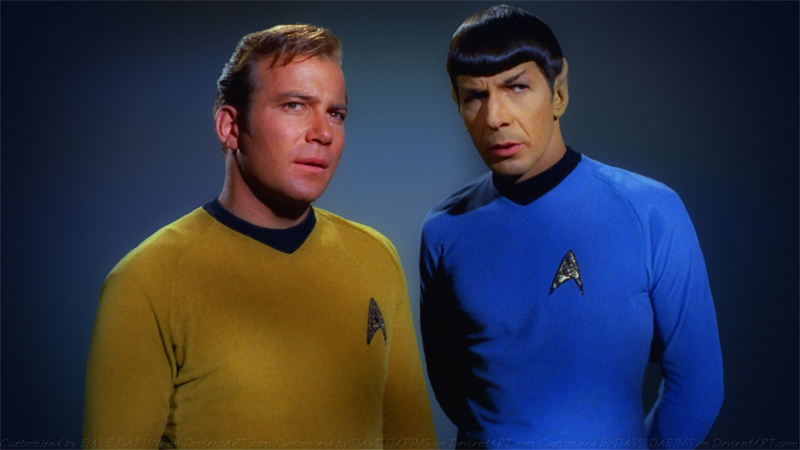
As said, this meaning partially changed during the years. A change that makes slash literature, today, almost superimposable to gay literature and maybe – just maybe – takes away some of its complexity.
This premise was necessary to talk about a movie we saw during the 2019 Venice Film Festival, since it is a movie that, despite the obvious appearence, strongly calls to mind those first slash stories.
The film in question is El Príncipe and is directed by Sebastián Muñoz. A film that won the Queerlion 2019 and was in the lineup of the 34. Venice International Film Critics Week.
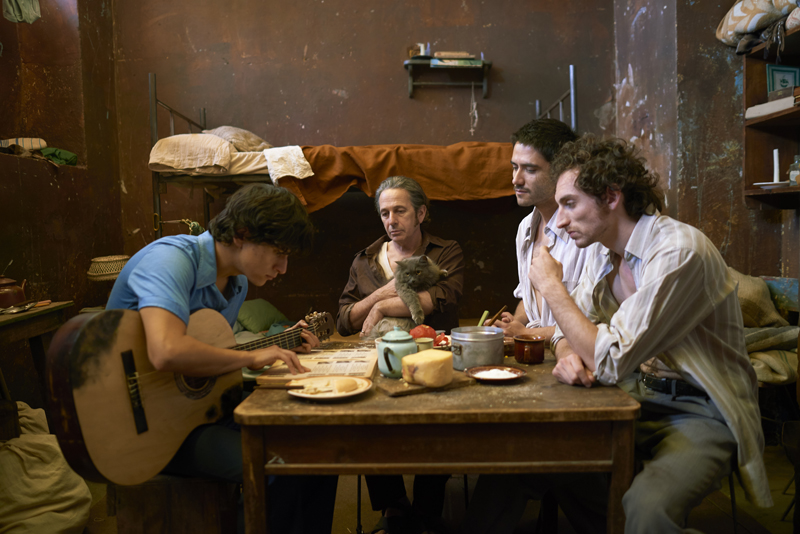
Based on a novel by Mario Cruz, El Príncipe is a story about freedom and love inside a Chilean prison during the 70ies, right before the election of Allende. At first glance, this story could be confused as one about homosexuality, but eventually it ends up being something very different. A movie in which an explicit approach to sexuality – direct as rarely seen on the big screen – hides a subtle approach to love and intimacy that caught our attention.
Chile, 1970. During a night of heavy drinking, Jaime, a lonely 20-year-old young man, stabs his best friend in what seems a passion outburst. Sentenced to prison, he meets “The Stallion”, an older and respected man in whom he finds protection, and from whom he learns about love and loyalty. Behind bars, Jaime becomes “The Prince”. But as their relationship grows stronger, “The Stallion” faces the violent power struggles within the prison.
Synopsis of El Principe directed by Sebastián Muñoz Costa Del Rio
We had the chance to interview director Sebastián Muñoz Costa Del Rio and the actors of his film Alfredo Castro, who plays El Potro (The Stud), and Juan Carlos Maldonado, Jaime/El Príncipe. More of a conversation than an interview, actually, which we enjoyed immensily because it shed light into the true (and powerful) meaning behind this story.
Reading behind the lines of El Príncipe
At the Q&A that followed the movie, you explained that, to you, El Príncipe is a story about love. And indeed, we saw many different shades of love during the movie. How would you describe the kind of relationship Jaime and Ricardo share?
SM: It is a very natural relationship, one that flourishes in a closed place, among men who are lonely and need to be contained. A first meeting between two persons who build their relationship in the everyday life they live in jail. The closed space fosters affection and time changes it and makes it different. So the whole point of the movie is not the oppression and violence by prison guards, nor the difficult life in prison, but how natural it is to build this relationship day by day and the feelings of these men, the sense of intimacy they look for.
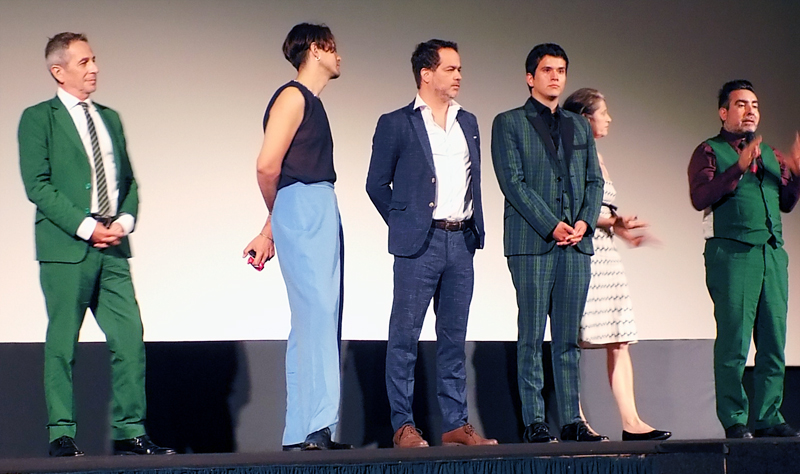
While watching El Príncipe, an inevitable question you ask yourself is the one we moved from: how much does homosexuality really count in all this? In fact, despite being a film where homosexual scenes are apparently central, their meaning is so multilayered that it is not difficult to realize they are used to talk about something different. We discussed this with the director and with Mr Castro.
Is your story strictly connected to the period in which it is set or do you think similar situations could be found in Chilean prisons nowadays, too?
SM: Prisons are very different now. The power of the Stud, in my movie, is in the territory and in the bodies. Nowadays, power is to be found on drugs and on other material things.
No matter the gender, it’s just love. In this movie, men do what humans always do: they try to find this love, and they try to find affection, and tenderness.
Director Sebastián Muñoz Costa Del Rio
AC: At the time, homosexuality in Chile was really bad; now there is more freedom to it. However, in the movie what we see is simply the law of the jail. Here in Italy, or in Chile, there is no moral value in having sex with another man in this kind of situations. You just need to have sex. To survive. It is not because you are gay, it is because you have only men. So, he’s not gay, I’m not gay – our characters – while some of them are indeed gay – but it is not a story about homosexuality.
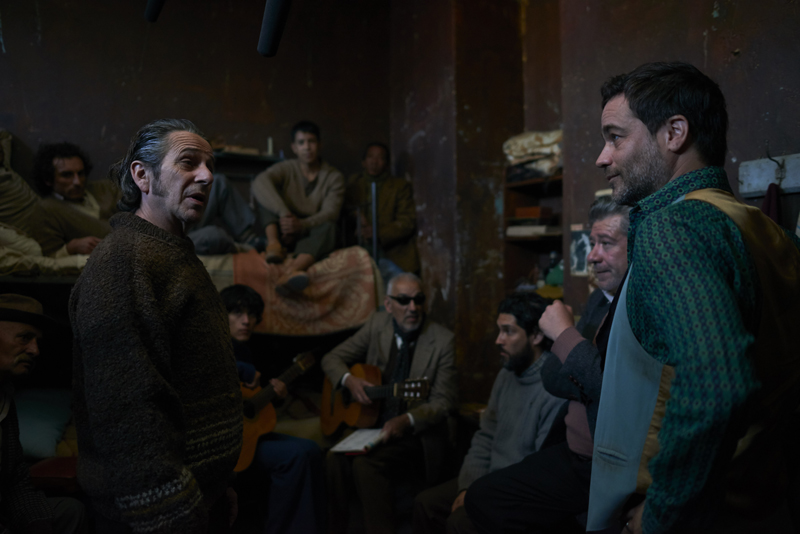
SM: I met Alfredo in the nineties with a trilogy he did for the theatre while I was a cinema student, and the first thing I learnt about his work is the importance to speak the Truth. And truth comes from loving someone. Your body does not limit you in this. No matter the gender, it’s just love. In this movie, men do what humans always do: they try to find this love, and they try to find affection, and tenderness.
This is very interesting. I remember that a few years ago, the Italian television broadcasted Brokeback Mountain and they censored the kissing scene. However, just a week before, they had shown a movie about a male/male couple that was very explicit – same time of the day – and they did not censor sex scenes between the characters. To us it almost felt like they were censoring love among men and not sex between them. So, a question about Ricardo and Jaime’s relationship: do you think that Ricardo developed real feelings for Jaime?
AC: Yes, of course. He did. But once again, it’s important to make it clear that this film is not about homosexuality. It is about love, about men in prison. For example, in the film, I have a wife coming to see me, and Juan’s character is looking for sex and sexuality, but in different ways.
SM: The decision that was very important to me, though, is that we have an older man facing a young man, who was abandoned almost like a dog. And the first time their eyes meet, when Jaime enters the jail… I don’t mean to say there is an Oedipal connection, there. But there is definitely some kind of connection.
AC: A connection that is about protection. This old guy needs somebody young to protect… and this young man needs an old man to protect him.
And then, with a specific, very emotional scene, their roles change…
AC: Yes, there is one scene that nobody talks about. We dance together in the jail and then I go to our room and I give my body to him. Before, I was active and he was passive, but in that moment I give him my body, and therefore I surrender my power over to him.
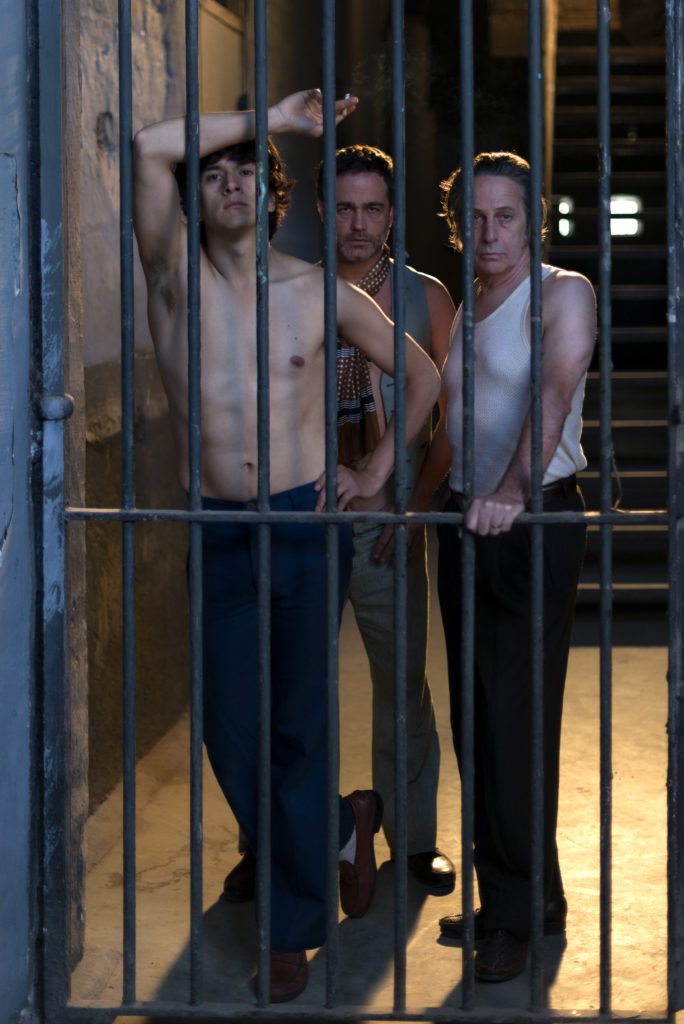
The scene Mr Castro describes is the one that I personally found the most significant in the movie, in many ways: as a viewer of this film, because of the way it was directed by Mr Muñoz – intense, not sugarcoated but at the same time somehow tender. As a psychologist, because of the choice to convey this change in power dynamics in such an effective and physical way. And as a fan, because the storytelling behind it perfectly reflects what our community looks for in characters, in a story and in the relationships built during it.
Ricardo’s newfound fragility is perfectly balanced by Jaime’s change into a man who is in control of things and is going to end up ruling the situation. We asked a comment about the character of Jaime to Juan Carlos Maldonado, who plays him.
What did you think of your character?
JCM: I believe Jaime has a deep and complex world inside himself, which we built in response to what the director needed and to the relationships formed with my colleagues. There are lots of layers in him, and he slowly uncovers them and finally turns himself into a complete and profound character.
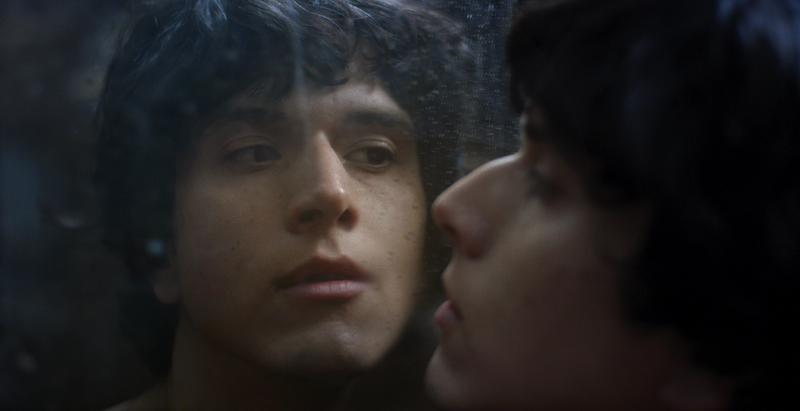
SM: In the seventies, with Allende’s election, Chile was walking towards socialism and towards freedom. This is the moment where the characters are in, but Jaime is different. He is a narcissistic character who did not see the reality of his country.
AC: But for the final scene, where we can listen to Allende’s first speech to the nation.
And indeed, it was beautiful (and an inspired choice) to see how the situation Chile was going through remains an invisible character till the last moment of the movie, where it suddenly makes its appearence.
In contrast with other films set during those days – that emphasize the impact this political situation has on everything, even when speaking of something different – El Principe does not seem, at first, to take into consideration the historical moment Chile is experiencing. This is because the main character is just too focused on himself to notice what’s happening around, as demonstrated by his ignorance and disinterest for what the older woman was desperately crying about.
But the final scenes marks a change in all this. Jaime has finally become the character he was meant to be. Through finding and losing Ricardo, and through his search for himself and his discovery of who he can be, he finally becomes aware of things. And indeed both the shoelaces he notices and the radio broadcasting Allende’s speech look like a metaphor of this new awareness.
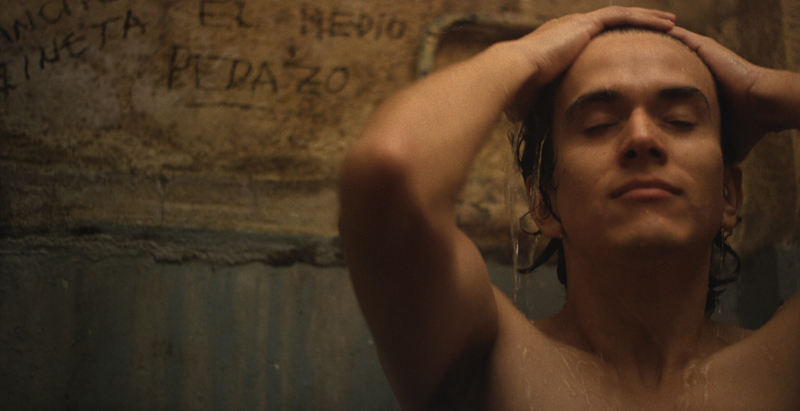
We closed the interview talking about plans for the movie, which will be at various festival all around the world, such as the San Sebastian International Film Festival (for the section Horizontes Latinos), the Busan International Film Festival in Korea for the section World Cinema, the Festival Internacional del Nuovo Cine Latinoamericana in Cuba, the Valdivia International Film Festival in Chile… and many others.
For our country this movie represents an attempt to share with young people the idea that freedom of your body is not in the mind, but in the heart.
Director Sebastián Muñoz Costa Del Rio
During our conversation at Lido, that was conducted in Spanish and translated in English for us by Alfredo Castro himself (thank you, Mr Castro. You are our hero!), a beautiful moment worth mentioning occured when Sebastian Muñoz started talking about the importance that Mr Castro has had in his life and for his art. Something Castro, a very humble man despite his incredible career, almost did not want to translate, but that, as Italians, we still understood (and ended up agreeing with).
SM: For our country this movie represents an attempt to share with young people the idea that freedom of your body is not in the mind, but in the heart. In this period the world is living a fervor for the “Destra”. So I feel that this film, coming out in this very moment, could say to the rest of the world that you can live free.
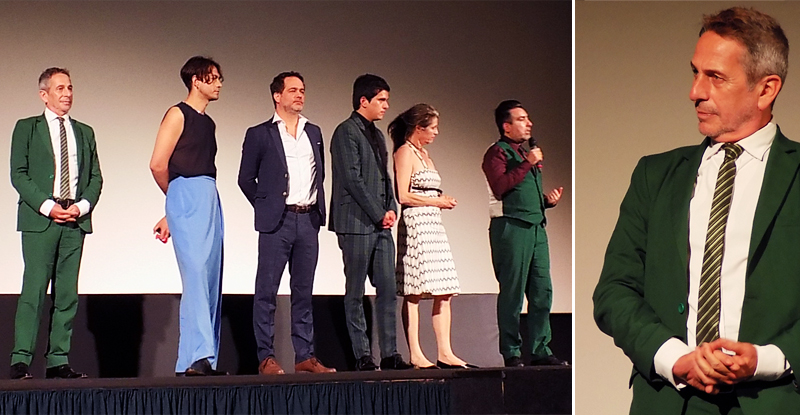
Alfredo, here, left a sign inside each one of us and he is the one who taught me to think the way I think today. He has been a teacher in my life, someone who is very important for my country not only as an actor, but as a person. A mind that is an inspiration to us all. He has no egoism at all and he opened a new road for all of us… and I need to thank him for this.
And indeed, we too learnt many things from Alfredo Castro during the past few years. Chilean history and its tragedies, for example, that his movies helped us uncover. But also how beautiful it is to see someone who can portray a character and make them believable without being histrionic about it. Someone who works on the details, on microexpressions, on a passion that is there, just under the surface, and that you can distinctly feel even when the story tries to hide it. Something that makes all his characters even more realistic.
El Príncipe is already travelling the world and it has been a pleasure and an honour to enjoy it at Venezia76 and discuss it with the people behind its creation.
Not only because it allowed us to identify the slash dynamics we mentioned in the opening, but because we recognized in Sebastián Muñoz someone who believes in what he is sharing with his films. Someone who thinks that the real stories, the ones worth telling, are the stories of common people who go on with their lives and survive day by day. A concept that some of the best artists in Italy – Fabrizio De Andrè in primis – were very fond of.
So, as Mr Muñoz conveyed through his words: in a world where hate and fear rule the show, freedom to be and freedom to love should be discussed more often because maybe, then, they would become a concept a little less scaring to those who still believe they should be kept in the dark.
A special thanks goes to Antonino Crisafulli for supporting fanheart3 in this interview and for spending whole days of the festival discussing with me this movie, its contents, its scenes… and, obviously, Alfredo Castro’s performance.
Also, thank you to the jury of the fanheart3 awards – for which this movie was nominated – for the interesting insights they gave on it. And to Serena Cecchinato for the support with this translation (and not only with it).
A final thank you to Mr Muñoz, Mr Castro and Mr Maldonado for their words and time: we wish you and your movie a bright future!
.
(1) The word fandom indicates the community of fans in general or, in case more details are added (Star Trek Fandom, Star Wars Fandom), the community of fans dedicated to that specific media product.

